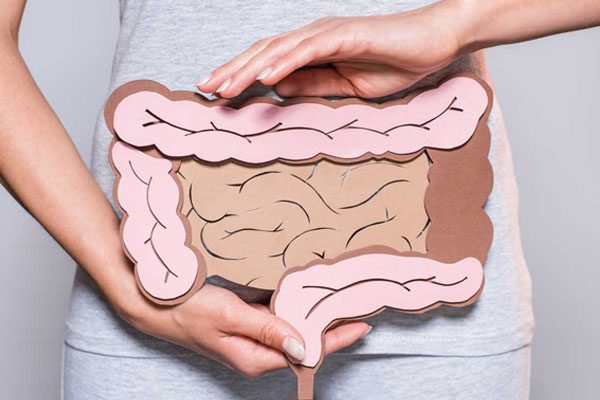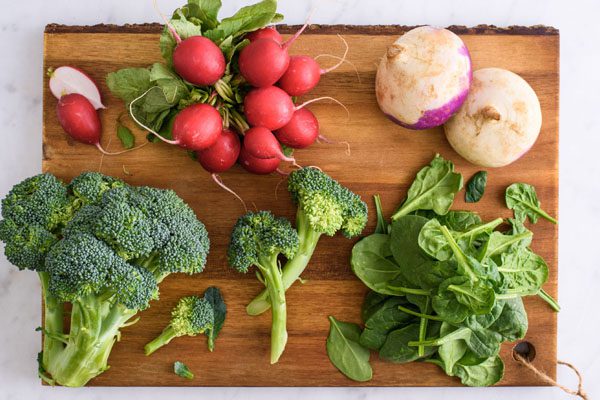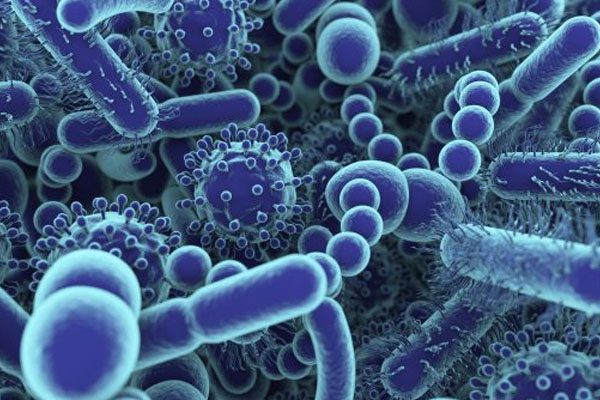What's What with Leaky Gut?

You have probably heard the phrase “leaky gut” before but may not be sure what it is. Your intestinal tract is over 4,000 feet long. A lot can go wrong on something that long, even one crack and that's a problem. One of those problems is the leaky gut.
On the show today, Bob Gilpatrick and Rollie Culp talk about how “leaky gut” effects the bodies intestinal lining and what gastrointestinal conditions and diseases it can lead to.
They also help identify some of the causes of “leaky gut” and how to avoid it. Join the conversation to learn some great things you can do to help strengthen gut health and rebuild the intestinal lining, especially if you are suffering with “leaky gut.”
Watch the podcast here:
Listen to the podcast here:
What's What With Leaky Gut?
Rebuilding The Intestinal Lining
You've probably heard the phrase, ‘leaky gut,’ but may not be sure what it is. On this episode, Bob and Rollie talked about how a leaky gut affects the body's intestinal lining, and what gastrointestinal conditions and diseases it can lead to. They also help identify some of the causes of leaky gut and how to avoid it. They share some great things you can do to help strengthen gut health and rebuild the intestinal lining, especially if you're suffering from a leaky gut. Sit back, relax and get ready to live forever young.---
In this episode, we're talking about leaky gut. People are like, “We've heard of that. What exactly is it?” Leaky gut is referring to a phenomenon where compounds that are inside your intestinal tract, which are supposed to stay there are leaking out into your blood.
It’s like a normal, healthy lining of an intestinal tract. First of all, it covers 4,000 square feet. That's a lot of places where you could get a crack. Think about a wall that's 4,000 feet long, you can get a crack anywhere. One of the things that it does is controls the absorption of toxins into your body. If you've got this 4,000-square foot long thing and it's got to control what's coming into your body, considering the toxins and everything that it filters out, when you get cracks in it, it's a problem.
You can get toxins into your entire body. You can also have cracks that are being caused by eating too much sugar, having a bad balance of good and bad bacteria. The cells are next to each other and tight together. When they get separated a little bit, that channel is where things can leak out that are supposed to be contained inside your alimentary canal and instead are now ending up in your bloodstream.
This is going to cause all different types of problems like food sensitivities, skin inflammation, inflammatory bowel disease and on and on. You could get chronic fatigue from it, even arthritis, fibromyalgia and things like that. If you have any of these things, it could be because you've got a leaky gut.
A lot of people that get non-alcoholic liver disease don't even realize that this might be one of the catalysts for that issue that they're experiencing. A lot of the studies are showing, which is scary, that our standard American diet is one of the main culprits of creating the cracks. We talk about it on all the shows. We eat all these processed foods that are high in calories but low in nutrients. Not only that but many of them have trans fats and a lot of different things that don't make nice in the gut.
Excessive alcohol consumption can also lead to this and eating foods with lectins. Peanuts and cashews have a lot of lectins in them and numerous other foods, nightshade family types of foods, eating raw tomatoes with the seed and skin has a lot of lectins in it and eggplant also.
People would say, “I like eating those things.” You can still eat them but you want to make an effort to try to take the skin and seeds off. That's where the lectins are. They go in there, burrow and create holes in the intestines.
The little caustic proteins drill holes and then create the leaky gut. You got technical with the caustic proteins but basically, they go in there and drill holes in your gut. You want to avoid them, especially if you're already sensitive. Some people are overly sensitive to lectins. The other thing is chronic stress also contributes to leaky gut, and we've done shows before, Rollie. It’s Managing Stress And Anxiety During Trying Times.
Definitely check that show out, especially with everything that's going on in society. If it causes stuff like leaky gut, you got to control it. What do you do in order to not have a leaky gut? What can you do to avoid it and if you have it? One of the main things that we've been learning about is the benefits of things like broccoli, cauliflower and particularly, brussels sprouts.

Leaky Gut: Your intestines control what's coming into your body. If there is a crack, that's a problem.
Some people don't like them. I like them. Brussels sprouts have this little pungent taste. If you like them, it's good to help with leaky gut, overall intestinal health and the health of your immune system, a lot of which is in your gut. That's where you manufacture a lot of that stuff.
They manufacture a lot of the immune cells that are fighting against toxins, invaders and those types of things. It's important to know that with these cruciferous vegetables, you don't want to eat a lot of it raw because there's an acid in them that can damage your thyroid. Leaky gut and too many cruciferous vegetables can lead to thyroid damage.
You want to steam your cruciferous vegetables but not for too long. Is that why they tell people that have thyroid issues to stay away from broccoli? The raw stuff because of the acid that's in it damages your thyroid. What you want to do is steam your vegetables for only 3 to 4 minutes. It’s a very short amount of time. It will mitigate some of the acids that could damage your thyroid.
It also activates these compounds that are creating the benefit for your gut. When you eat the food raw, those compounds don't activate, and so they don't work. Eating raw broccoli, Brussels sprouts or cauliflower, it’s not required to do it. If you steam it for more than four minutes, it deactivates another compound that helps with absorption. The other thing that you can do to help with the absorption is, for example, you have a recipe where maybe you're making broccoli soup. It's going to cook for more than 3 to 4 minutes.
The first thing that you want to do is chop that broccoli into small pieces. The act of chopping it activates the positive compound. It also makes it so you can cook it longer if you chop it. If you're wanting to have some broccoli with some grass-fed butter on it, great.
You can take the flowerets or even the stalks, steam it for 3 to 4 minutes, go ahead and eat it partially cooked. If you're going to make soup and you’ve got to cook it for a half-hour, chop it up well first. Another thing you can do is you can add mustard seed powder, which has an activating compound that helps you absorb the compound in the broccoli that helps with your leaky gut. It's not as simple as, “We’ve got to eat more of this and less of this.” There's more to it than that but that's the basic gist of it.
We'll have information on not just the article but how to cook the vegetables properly. We'll get that out there. When I talk to people, they always say, “I don't like the way the broccoli and these things taste.” What you got to do is find something that works for you. These are things that are going to help, not only with the gut, but there are so many beneficial compounds in these things that you’ve got to figure out a way to make it work.
You can also search online and find things like sprouted broccoli seeds. They'll have it in powder form and you can use that. It’s like our Barley. Because it's a sprouted seed, it has a lot of compounds and things in it that not only help repair the gut, which is what we're going to need to do if we have all these issues but it removes the inflammation that's causing the further damage. It's a twofold thing on that.
The Gladiator Barley will absolutely help with leaky gut. Not only from the compounds that are similar to sprouted broccoli, but also there's a lot of fiber. Another important aspect of helping leaky gut is to begin to slowly increase your amount of fiber. Fiber is going to help with that, and it is also essential for interacting with good bacteria. That's the food that fuels the flora.
It ferments the fiber, the bacteria it does and creates metabolites. That's where the magic happens. It is because you are creating metabolites like tryptophan, which are the precursor to serotonin and an essential neurotransmitter. You wouldn't even be able to get out of in the morning without serotonin. This process of interplay between your microbiome and the food you eat creates human metabolites that make your whole human system work.
I get a lot of questions talking about gut flora and how to make it work the best. People ask me, “What's a prebiotic?” A prebiotic is a non-digestible fiber.

Leaky Gut: Eating cruciferous vegetables like broccoli, cauliflower, and Brussel sprouts helps with a leaky gut. Just don't eat them raw because there's an acid in them that can damage your thyroid.
It serves as the food interaction for the bacteria. A lot of people take probiotics and think, “I’ve got to get the one with the highest colony count. I’ve got to get the 20 million CFUs.” The real key here is once you get them in is to convert them in the gut. You don't just need the probiotics to do that. You need the prebiotics for the fuel. What they are making is the metabolite. The metabolites do what, Bob?
The metabolites fuel every one of your metabolic processes. The example we gave with tryptophan, it is a metabolite that's created from the interaction of the bacteria with the fiber.
What's unique about the probiotics that we have is not only do they have prebiotics in them, but through the process that we do have pre-made already done for you metabolites. The thing that you're trying to make in your gut manufacturer naturally is already in the probiotics, which is a lot of people that we've talked to that have had issues with digestive problems like IBS, Crohn's and these types of things use the probiotics. They notice an improvement fairly quickly because they don't have to go through the process of creating metabolites. They're already in there.
There's also fiber in our probiotic metabolite product, sprouted barley seeds and Boomer Boost. In Boomer Boost, there's also a very important compound called phosphatidylcholine. You need to know about this because having a leaky gut can lead to a fatty liver, which means a liver that contains too much fat and it's not being released into the bloodstream.
This is a very serious and life-threatening problem if it gets too bad. It's solvable by first stopping the cause of the problem, which is the leaky gut and then helping to extract that fat out of the liver so it can be burned for fuel. You can use fat for fuel but not if it's stuck in the liver.
The compound that gets it is phosphatidylcholine. Your body makes phosphatidylcholine but as you age, you make less of it. If you have an overburden of fat because of a leaky gut, it won't be able to keep up. We put phosphatidylcholine in Boomer Boost for that reason. You can also always take extra if you want. Another thing important for helping with leaky gut is quercetin.
Quercetin is in our product, Resveratrol. Originally, the reason we made that was to help kill off the old cells that should be dying and getting out of the way of the sensitive cells to create apoptosis. Quercetin and resveratrol together help to facilitate that so that you can replace those old cells with new ones. It turns out also quercetin is good for helping to repair leaky gut, as is glutathione, which is an amino acid that is in the Boomer Boost product itself.
In the Boomer Boost, you've got the phosphatidylcholine, which helps extract the fat and then the glutathione that helps at the same time. In quercetin, we have a product and it is called Resveratrol Advanced Blend. It's a blend of multiple different polyphenols but specifically, there is the quercetin along with the resveratrol combination. We talked about it on a couple of different shows but the one he's talking about is called apoptosis, which is where those old cells die off and we can make new ones. That happens to the quercetin and causes that wonderful.
The quercetin with the resveratrol together helps to stimulate cellular death, which in this case is a good thing because they are old cells that are creating inflammatory issues for all the cells in the region.
When you talked about how the actual lining is made up where the cells are close together, then they separate and that's where the issue starts. I would assume that quercetin is helping those cells in that area.
It's helping all of the cells, particularly in that area. You want to first make sure that you avoid lectins, too much alcohol, processed foods, other toxins, too much stress and be smart about how you use your cruciferous vegetables like broccoli. Cook them the way that we said, and you can also use coconut products.
They are very good for helping with leaky gut. Also, the supplements that we were talking about to make sure that you have the right mix of probiotics because you have both good and bad bacteria so-called in your gut and there's a balance. If it gets out of balance with too many bad, that can cause a leaky gut. Having a good probiotic with metabolites, a product with phosphatidylcholine, glutathione like Boomer Boost, and also make sure you have your quercetin.
If you're going to get quercetin, might as well get it with resveratrol. It'll not only help your leaky gut but every single part of your body. This is a fairly new leaky gut. We've got to look at it with different things. One of the big things we try to do here is to look at what we can find naturally to help through the rebirth of your intestinal lining.
What we see when people use these types of products is they discover that they need to watch their lectins. We help them with their stress also. Inflammatory skin disease, bowel disease, food sensitivities, even to gluten, arthritis, fibromyalgia and all these types of things that we've mentioned before start to go away because it was in part being caused by a leaky gut.
As you address it very smartly, you'll notice that these things will resolve. Quite often, it makes a huge difference in people's lives. If you have inflammatory bowel disease, you're not very happy. You're always worried. “Where’s the bathroom? What am I going to do if I go out? My stomach is always a problem.”

Leaky Gut: Fiber and good bacteria create metabolites. These metabolites are the precursors to the neurotransmitter serotonin.
If people want to get in touch with us about this, give us a call. 861-4619. We've got a product specialist that'll help you understand how quercetin and those types of things can help. You’ve got to be a champion for your own health. It's your health. It's not ours. We can help you with it. Back-to-back and coast-to-coast.
Thanks for reading.
Bob, I can't think of anything else.
That covers it well.
Thank you for reading, everyone. We'll see you in the next episode.
Important Links:
- Managing Stress And Anxiety During Trying Times – previous episode
- Gladiator Barley
- Boomer Boost
- Resveratrol





Leave a comment